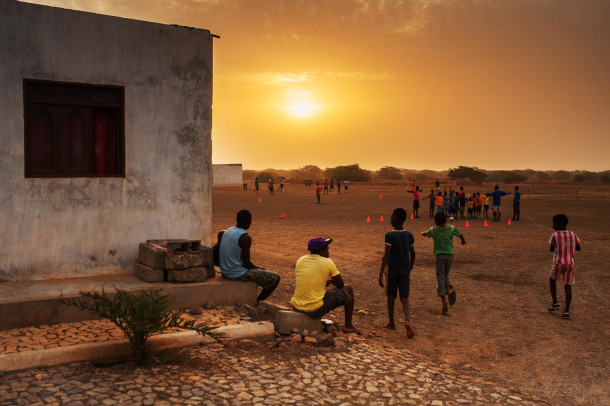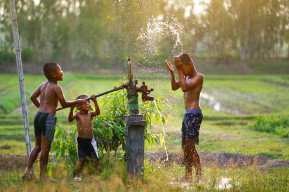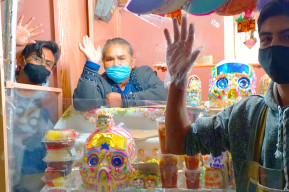News
Small island nations that are water-secure will be more resilient to climate change

Numerous small island nations will attend this side event, along with the Alliance of Small Island States and the United Nations Office of the High Representative for the Least Developed Countries, Landlocked Developing Countries and Small Island Developing States, among others.
Some of the most water-scarce countries in the world
Social progress, economic growth and environmental sustainability are the three pillars of sustainable development. Small Island Developing States (SIDS) face unique challenges in all three areas. They are among the most water-scarce countries in the world, with 7 out of 10 (71%) facing the prospect of water shortages in the years to come and 9 out of 10 (91%) lying just a few metres above sea level.
Groundwater and rainwater harvesting are the main source of freshwater in SIDS. As these countries tend to be low-lying, their groundwater is prone to saltwater intrusion, which is a problem for 73% of SIDS.
Saltwater intrusion into soils also threatens agriculture. SIDS import more than 60% of their food and half of these countries even import over 80%. Greater water security would support endogenous agriculture and fisheries and, thereby, protect food security.
In 2016, UNESCO’s Intergovernmental Hydrological Programme conducted groundwater assessments on 42 islands to improve groundwater governance in SIDS at the local and national levels.
Much of freshwater is being lost in the Caribbean, as 85% of wastewater is untreated. As a consequence, wastewater discharge has destroyed 80% of the living coral reefs in the Caribbean over the past 20 years. This could have dire economic repercussions, since tourism accounts for about 70% of GDP and coral reefs are a key attraction for the many tourists who holiday in the Caribbean each year.
In 2018, UNESCO’s Intergovernmental Hydrological Programme studied wastewater management and emerging pollutants in a rural community of St Lucia.
Greater water security can reduce vulnerability
One way to protect freshwater and coastal ecosystems is to restore mangrove forests. These serve as a natural buffer from cyclones and inland flooding from storm surges. Healthy mangrove forests not only protect coastal populations but also economic sectors such as agriculture and fisheries, industry and tourism. In Cuba, UNESCO is working with local scientists and community leaders to restore mangrove forests in the Guanahacabibes Peninsula Biosphere Reserve.
Farther inland, the restoration of forest ecosystems can serve as a buffer against flooding and landslides. In 1960, about 60% of Haitian territory was covered by forest. By 2011, this proportion had shrunk to 3.5%. Since about half of the country is hilly, this deforestation has led to severe erosion. Without trees and shrubs to retain moisture, rainwater carries off precious topsoil and can easily destabilize the soils, leading to landslides. The growing frequency and strength of hurricanes and tropical storms is making both flooding and landslides more common in Haiti. Since 2018, UNESCO’s Man and the Biosphere Programme has worked with local communities and school children in La Selle Biosphere Reserve and beyond to reforest the bare hills. Over 290,000 seedlings have been planted, including avocado, coffee and tamarind.
UNESCO is working with the local management committee and scientific community in Maio Biosphere Reserve in Cabo Verde to establish an ecohydrology demonstration site. A biosphere reserve since 2020, Maio encompasses an entire island and marine zone. Tourists flock to the biosphere reserve for its gorgeous beaches and rich cultural and historical heritage. However, the growing tourist industry is straining limited freshwater resources, as Maio is one of the most arid islands in Cabo Verde. The ecohydrology demonstration site will foster an integrated approach to coordinating and managing the island’s freshwater, land and rich biodiversity to achieve long-term sustainability. The site will also provide opportunities for researchers, trainees and other stakeholders to acquire scientific knowledge of ecohydrological principles and strategies.
UNESCO is also providing SIDS with policy advice on how to ensure that the population has access to safe drinking water and adequate sanitation. These were recognized by the United Nations in 2015 as being basic human rights. In 2018, UNESCO organized a Consultation Meeting on Water Quality in Nadi, Fiji, which brought together 12 SIDS from the Pacific, as well as a number of international and regional organizations.
SIDS resilience to climate change through water security
Follow this side-event at United Nations Headquarters on Friday, 24 March 2023 by watching the live webcast between 15:30 and 16:45 pm (CET).
Contacts: Sarantuyaa Zandaryaa (s.zandaryaa@unesco.org) and Philippe Pypaert (p.pypaert@unesco.org)








